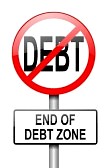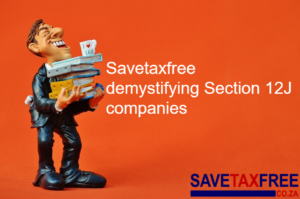Drowning in debt? Here’s how you can get it under control
Story Highlights
- Debt
- SA Human Rights Commission
- National Credit Regulator
- Debt counseling
- Emergency fund
Related Articles
By Nonhlanhla Kunene
Anushka* will never for get that dreadful Tuesday when the sheriff came knocking on her door to seize her furniture. “I knew then that my husband and I had reached a debt crisis. We were up to our ears in debt and had absolutely no means of paying it back. They took everything, the only thing left was the bed and our clothing”.
While the humiliation of having their goods seized as their neighbourhood watched was one of the worst experiences Anushka has had to go through, the stream of phone calls and threats from their creditors was by far the most stressful part of the ordeal and she still feels the emotional trauma it caused. Fortunately, with the help of a few generous neighbours, Anuska and her husband Tim* are slowly rebuilding their lives. Although they’re still not completely out of the woods, they are working hard to repay their debts.
They do not earn high incomes and while they could have been more careful with their own expenditure, one of the main reasons for their problems was their generosity. The hardest thing they had to learn to do was to say no to friends and family. Despite being low income earners, they received repeated requests for financial assistance and even used to take out loans to assist others. Things quickly spiraled out of control.
 For anyone, debt left unchecked,can quickly become a nightmare. With a staggering 11-million South Africans reported as being at least three months or more in arrears by the SA Human Rights Commission (SAHRC), those of you feeling alone in the debt trap can rest a little easier in the knowledge that the pressure you are under is not yours alone.
For anyone, debt left unchecked,can quickly become a nightmare. With a staggering 11-million South Africans reported as being at least three months or more in arrears by the SA Human Rights Commission (SAHRC), those of you feeling alone in the debt trap can rest a little easier in the knowledge that the pressure you are under is not yours alone.
However, knowledge of a shared misery with 11-million strangers will do nothing to alleviate the negative effects that over-indebtedness can have on one’s psychological and physical wellbeing. The reality is that financial difficulties rank among the leading causes of stress, which is hardly surprising when one considers the adverse effects that often go hand-in-hand with severe debt, such as:
- Repossession of property, even your home
- Garnishee orders deducting payments from your salary
- Depression which can lead to suicide
- Relationship breakdowns
Although debt can result in feelings of helplessness and isolation, there are measures to help get it under control. In most cases, debt resolution is just a phone call away. So what steps should you follow if you feel you’re drowning in debt? For your benefit, we’ve put together some simple steps recommended by the National Credit Regulator and others that you can follow if your debt becomes too much to handle:
Start living within your means: Cut out whatever you can from the “expenses” column in your budget. Then cut some more. According to research by the SAHRC, up to 40% of loans from micro lenders were being used to cover everyday expenses such as food. Furthermore, South Africans were also turning to credit to pay off older debt. To get your debt under control, you have to accept that you may have to forgo some of those luxuries you’ve become accustomed to, such as alcohol and cigarettes or your gym membership, or you may even need to downgrade your car. And as with Anushka and Tim, financial generosity to family and friends has to take a back seat: ensure your own finances are on order before helping others.
Stop borrowing more money: Actor Will Rogers once famously said, “If you find yourself in a hole, stop digging”. Relying on debt to pay off other debt can only dig you deeper into an already bad financial situation.
Know your rights. The first and most important tool you can equip yourself with is knowledge about your situation. For example, many people are unaware that the National Credit Amendment Act makes it illegal for companies to sell or recoup prescribed debt, which is old debt (usually three years or older) which was never acknowledged or paid by an individual.
Do not ignore your creditors. Sticking your head in the sand and hoping your creditors will disappear will not make your debt go away, it will only make your situation worse as the interest piles up. Never ignore letters from creditors. If you are unable to meet your obligations, make them aware of your situation or seek professional help and advice.
Come to grips with your financial situation. The first step to tackling a bad financial situation is getting to understand your level of indebtedness. Create a budget listing your total monthly income and expenses. Also get hold of your credit report to find out if anyone has listed adverse credit information against you — everyone is entitled to one free report a year. A credit report gives your credit worthiness, based on information that lenders provide to companies such as Experian South Africa and TransUnion. Those measures will give you a holistic view of your financial situation as you get to understand exactly how much you are spending and what you are spending it on.
Speak to a debt counselor: There is no shame seeking a helping hand and there are plenty out there. A debt counselor can assist in renegotiating and having your debt repayments significantly reduced to allow you some much needed breathing space.
Start building an emergency fund: Once your debt repayments have been reduced, start putting aside any extra money you may have to build an emergency fund to better prepare you for unforeseen financial setbacks. One cost-effective way of doing this is to invest through a tax-free saving account. The annual costs for these accounts are minimal and all gains are free of tax – including interest earned, dividends and capital gains. To learn more about tax-free savings and the different options available, click here. * Not their real names.






